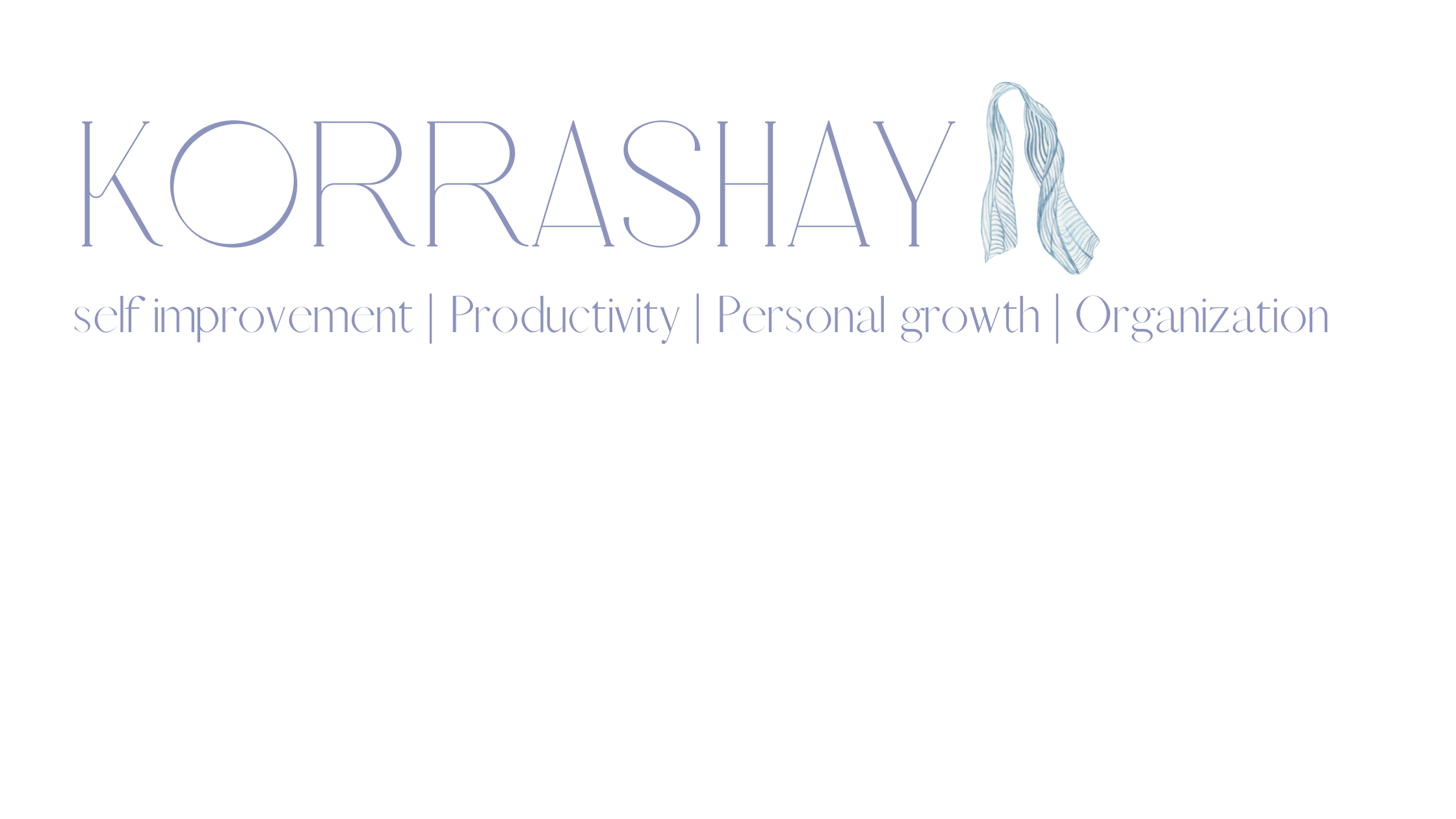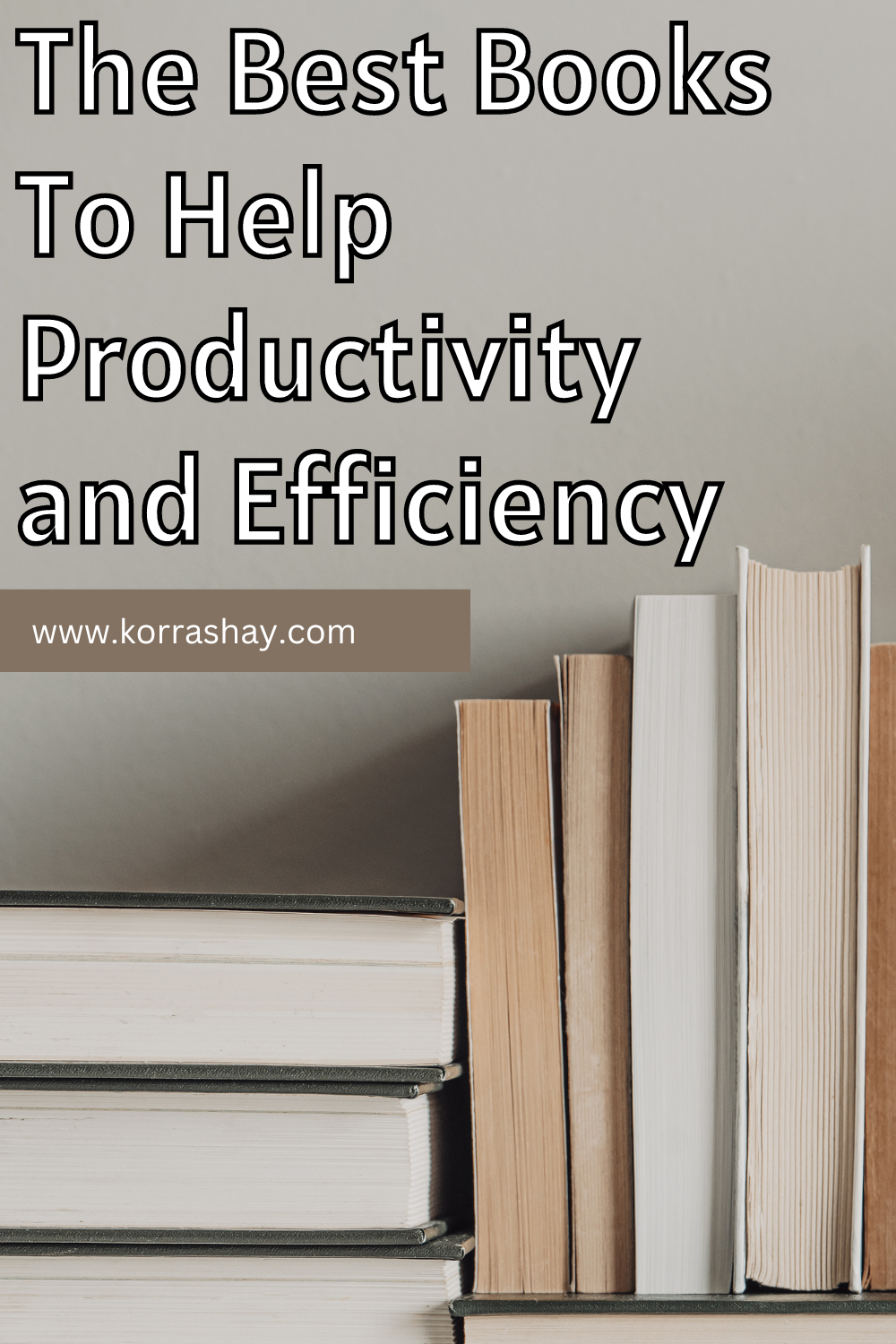Are you struggling to juggle multiple tasks, manage your time effectively, or find yourself constantly battling distractions that hinder your productivity? You’re not alone. In today’s fast-paced world, where demands on our time seem never-ending, mastering the art of productivity and efficiency has become essential for success in both personal and professional spheres.
The good news is that you don’t have to navigate this challenge alone. Countless experts, researchers, and successful individuals have shared their insights and strategies in the form of books that have become invaluable resources for enhancing productivity and optimizing workflow.
In this article, we’ve compiled a comprehensive list of the best books to help you maximize your productivity and efficiency. Whether you’re a student, a professional, an entrepreneur, or simply someone seeking to make the most out of each day, these books offer practical and proven techniques to elevate your productivity game to new heights.
From classic works that have withstood the test of time to modern bestsellers that reflect the changing landscape of productivity in the digital age, each book on this list holds valuable lessons and actionable advice. We’ll explore renowned methodologies like Getting Things Done (GTD) and the power of habits, delve into the secrets of achieving deep focus and eliminating distractions, and uncover strategies to identify and prioritize what truly matters.
Whether you’re a productivity enthusiast or just starting your journey to unlock your full potential, these books offer a treasure trove of wisdom that can revolutionize the way you work and live.
So, without further ado, let’s dive into the world of productivity literature and equip ourselves with the knowledge to supercharge our productivity and efficiency!
*** This article may contain affiliate links that I receive a small commission off of. As an Amazon Associate I earn from qualifying purchases. I always appreciate any support to keep this site running! Thank you!***
The Best Books To Help Productivity and Efficiency
Productivity non fiction books to read:
Here is a list of some highly regarded books that have helped many people improve their productivity:
- “Getting Things Done” by David Allen: A classic in the productivity genre, this book introduces the GTD method, a practical and comprehensive approach to organizing tasks, managing time, and reducing stress.
- “Atomic Habits” by James Clear: While not solely focused on productivity, this book emphasizes the power of small habits and how they can significantly impact your productivity and overall success.
- “Deep Work” by Cal Newport: This book explores the benefits of focused, undistracted work and provides strategies for achieving a state of deep concentration to produce high-quality output.
- “The Power of Habit” by Charles Duhigg: Although it’s more about understanding habits in general, this book explains how to develop good habits and eliminate bad ones to boost productivity.
- “Essentialism: The Disciplined Pursuit of Less” by Greg McKeown: This book advocates for focusing on what truly matters and eliminating non-essential tasks, helping you make the most of your time and energy.
- “Eat That Frog!” by Brian Tracy: A short and practical book that provides tips and techniques to stop procrastinating and start taking action on your most important tasks.
- “The 4-Hour Workweek” by Timothy Ferriss: This book challenges traditional ideas about work and productivity, providing strategies to increase efficiency and create more free time.
- “Smarter Faster Better” by Charles Duhigg: Another excellent book by Duhigg, which delves into the science of productivity and explores how certain mental habits and approaches can make you more effective.
- “The ONE Thing” by Gary Keller and Jay Papasan: This book emphasizes the power of focusing on a single task at a time, leading to greater productivity and achievements.
- “Rework” by Jason Fried and David Heinemeier Hansson: A fresh take on productivity and entrepreneurship, this book challenges conventional business practices and offers practical advice for getting things done.
Remember that productivity is a personal journey, and different books may resonate differently with different individuals. I recommend exploring a few of these titles and finding the ones that align best with your productivity goals and work style. Happy reading!
Tips for reading non fiction books:
Here are some tips to help you make the most out of reading nonfiction books:
- Choose Topics of Interest: Pick nonfiction books that align with your passions, interests, and goals. When you’re genuinely interested in the subject matter, you’ll find it easier to stay engaged and absorb the information.
- Set Clear Goals: Determine what you want to achieve from the book before you start reading. Whether it’s gaining specific knowledge, learning a new skill, or broadening your understanding of a topic, having clear goals will help you stay focused.
- Take Notes: Keep a notebook or use a note-taking app to jot down key points, insights, and any thoughts that come to mind while reading. This habit will aid in retention and make it easier to review essential concepts later.
- Practice Active Reading: Engage with the material actively. Ask yourself questions as you read, challenge the author’s ideas, and make connections to your own experiences. Actively processing information will deepen your understanding.
- Chunk Your Reading: Nonfiction books can be dense and information-heavy. Break your reading sessions into manageable chunks to avoid feeling overwhelmed and to allow time for reflection.
- Read Reviews and Recommendations: Before choosing a nonfiction book, read reviews or seek recommendations from trusted sources. This will help you select books that are well-regarded and relevant to your interests.
- Seek Diverse Perspectives: Don’t limit yourself to one viewpoint. Explore nonfiction books that present different perspectives on a subject. This will broaden your understanding and encourage critical thinking.
- Summarize and Reflect: After completing a chapter or a section, take a moment to summarize the main points in your own words. Reflect on how the new knowledge fits into your existing understanding.
- Revisit and Review: Revisit your notes and summaries regularly to reinforce what you’ve learned. This review process will aid in long-term retention.
- Apply What You Learn: Put the knowledge gained from nonfiction books into practice. Applying new ideas or concepts in your daily life will reinforce your learning and make it more meaningful.
- Join or Form a Book Club: Engaging in discussions with others who have read the same nonfiction book can offer new perspectives and insights, enriching your understanding of the material.
- Read with an Open Mind: Be open to challenging your beliefs and preconceptions. Nonfiction books often present new information that might challenge your existing worldview.
Korra-Shay
If you enjoyed this article on The Best Books To Help Productivity and Efficiency then you probably (hopefully!) will enjoy and find these articles helpful as well:
- 30 Ways To Improve Yourself In August 2023
- How Start To Channeling Anxiety Into Productivity
- The Weekly Productivity Checklist To Follow
- Habits To Help You Have Better and More Efficient Days
- Tips For Using Your Planner To Become Productive
Let’s really connect and stay in touch!
Below is a quick form to subscribe to my weekly roundup! It’s just one email a week with my 3 newest posts, email exclusive freebies, weekly finds and favorites, and so much more. I would love to stay in touch moving forward!



You must be logged in to post a comment.